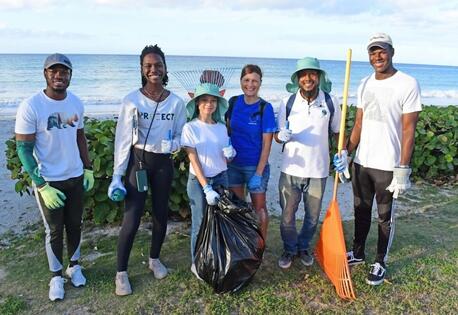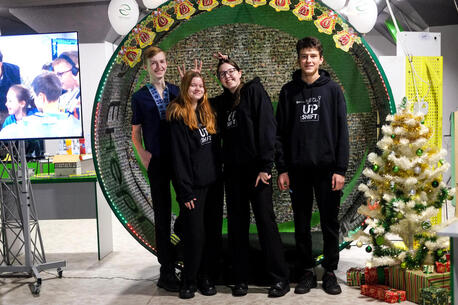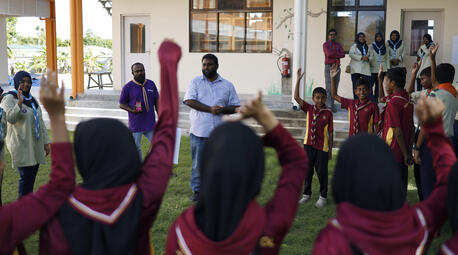
Working Toward Climate Resilience in the Maldives
For Maldivians, climate change is an existential threat. For UNICEF Maldives' Climate Resilience Consultant Maeed Zahir, moving toward solutions starts with youth.
The Maldives, an upper-middle-income country in South Asia, is made up of 1,192 islands across 13,500 square miles of Indian Ocean. And like other island states, the nation's geography leaves it highly sensitive to any changes in climate and the ocean environment — and extremely vulnerable to natural hazards like coastal flooding and erosion.
Because of climate change, seasonal monsoon winds and rain have become more intense and less predictable. Storms and tidal surges are more frequent and more severe.
And given that Maldivian terrain is low and flat — 80 percent of the country's land lies less than 3 feet above sea level — slowing down the effects of global warming, rising seas in particular, is of utmost urgency. With most people living on narrow strips of land within a few hundred feet from shore, relocating is simply not an option.
"Our nation is really in peril because of climate change," says Maeed Zahir, UNICEF Maldives' Climate Resilience Consultant. "What it means is that my children may not be able to live in these beautiful islands that I call home."
The attitude among Maldivians is not one of gloom and doom, however. There is hope, there is energy, and there is determination, especially among young people. This is the prevailing attitude Zahir says he encounters regularly while on the job, going into communities and visiting schools to lead climate discussions and group activities where kids share ideas and brainstorm solutions.
"These very meaningful conversations that I get to facilitate help me to really understand that there is this positive energy among our young people to drive change," Zahir says. "And we learn a lot ourselves ... [T]hey keep reminding us that every single action matters."
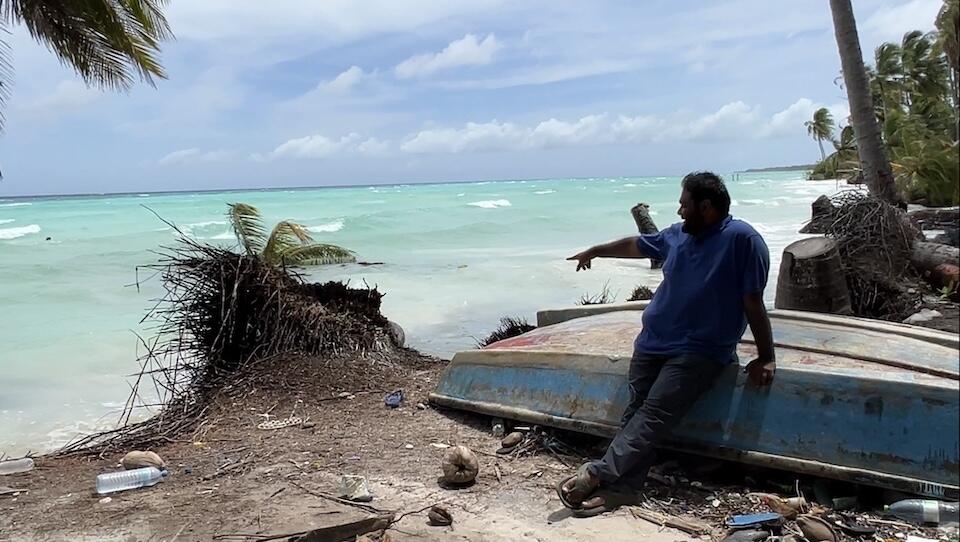
Climate education considered an important first step toward climate action
One of the most important achievements of recent years in terms of advancing the country's response to climate change is making sure children are learning about it in school. When the Ministry of Education decided to integrate climate education into the national curriculum, UNICEF was there to help.
For Sabra Noordeen, the government-appointed Special Envoy for Climate Change, it was a no-brainer. "If you don't know what you're trying to protect," she told UNICEF USA in a recent interview, "how are you going to know how to protect it — or even why you should protect it?"
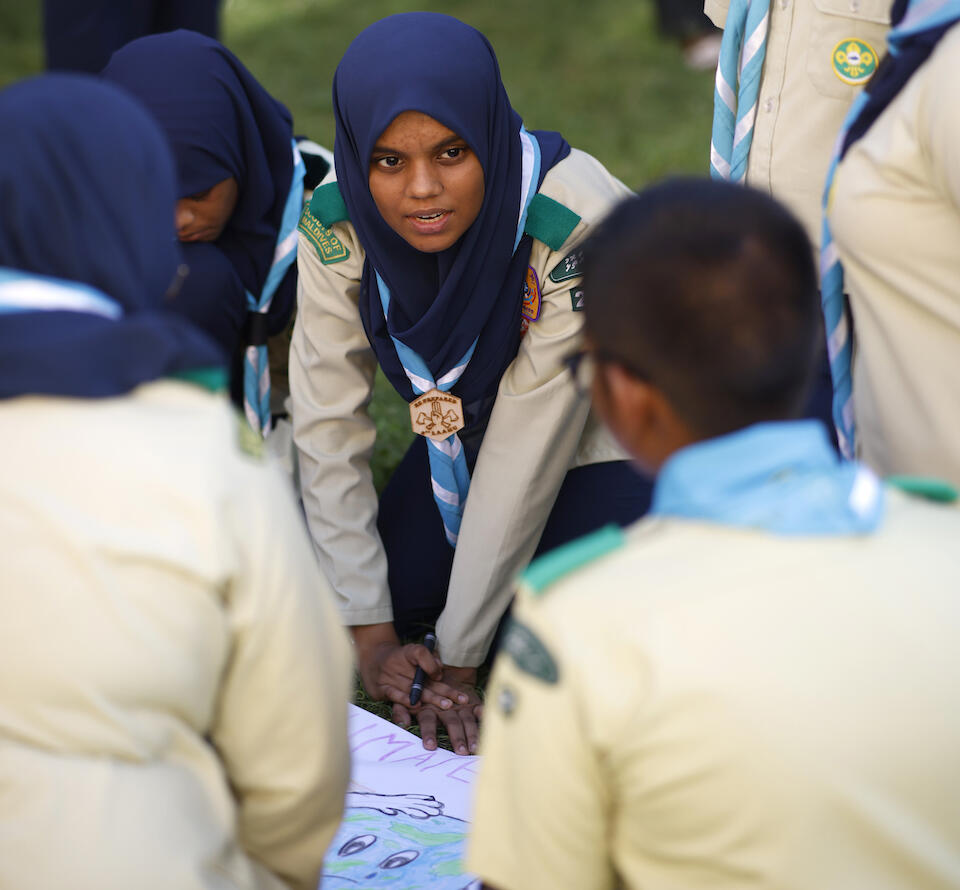
A deeper understanding has already started generating youth-led climate initiatives.
Take the country's plan to phase out single-use plastics. "It all started in the schools," Nordeen noted. "The schools were first to declare themselves free of plastic, and it became such an issue for the children that they took it home, to their families. And then parents and caregivers took it up, and then their friends, and it went up the ladder until it finally became an actual government policy.
"For progressive policies like this to work — for them to be sustainable and successful — you need to have that level of engagement and support throughout society."
UNICEF's role: empowering young people to bring change
Zahir agrees that young Maldivians will be the ones driving change. They are eager to demonstrate alternative paths forward, he says — to show that it is possible to protect the environment, and build climate resilience, without stifling economic development. Those who are already involved in ongoing projects — such as the group restoring coral reefs off the coast of Vilimalé in North Male Atoll, for example — are keen to coordinate with local businesses, including resorts and snorkeling and other tour operators, to find common ground.
Here is where UNICEF can be an enabler, by pursuing partnerships with the private sector that lead to internships, mentorships and other learning and job training opportunities for young people determined to take up the cause, and by providing resources and support to young innovators and entrepreneurs through programs like UPSHIFT and imaGEN Ventures.
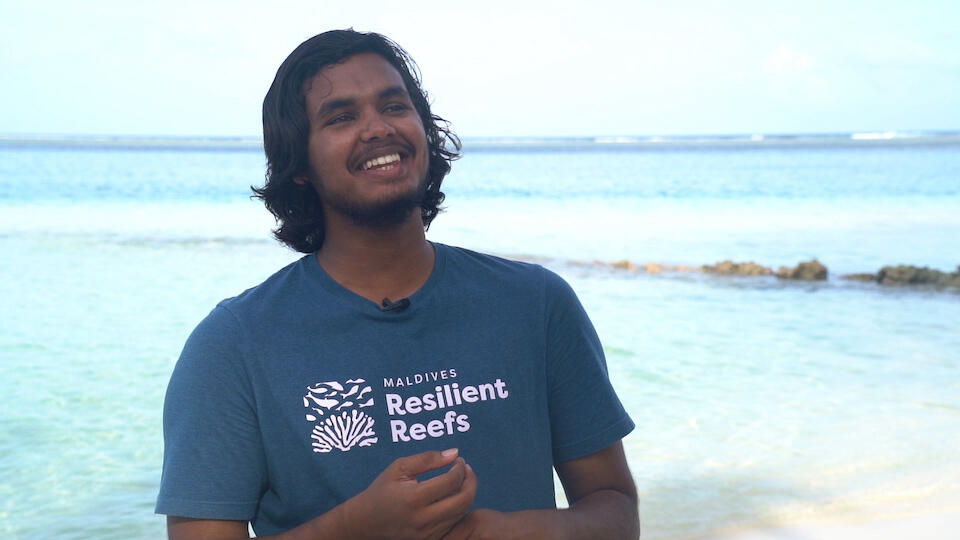
UNICEF also provides platforms for young people to convene, connect and co-create climate solutions on a national and even global stage.
On International Youth Day in August, for example, youth had a chance to speak directly to government ministers about their experiences working on green initiatives at a UNICEF-organized event. In October, UNICEF hosted "Youth Track to COP28" where kids presented their recommendations and demands for climate action to national policymakers and world leaders, and youth-led projects developed through the UNICEF imaGen Ventures Bootcamp were showcased.
Leading up to COP27 in 2022, UNICEF held a similar event where youth met with key government stakeholders, civil society organizations and private sector partners to discuss protection and conservation, energy innovations and their vision for a "Plastic-Free" Maldives.
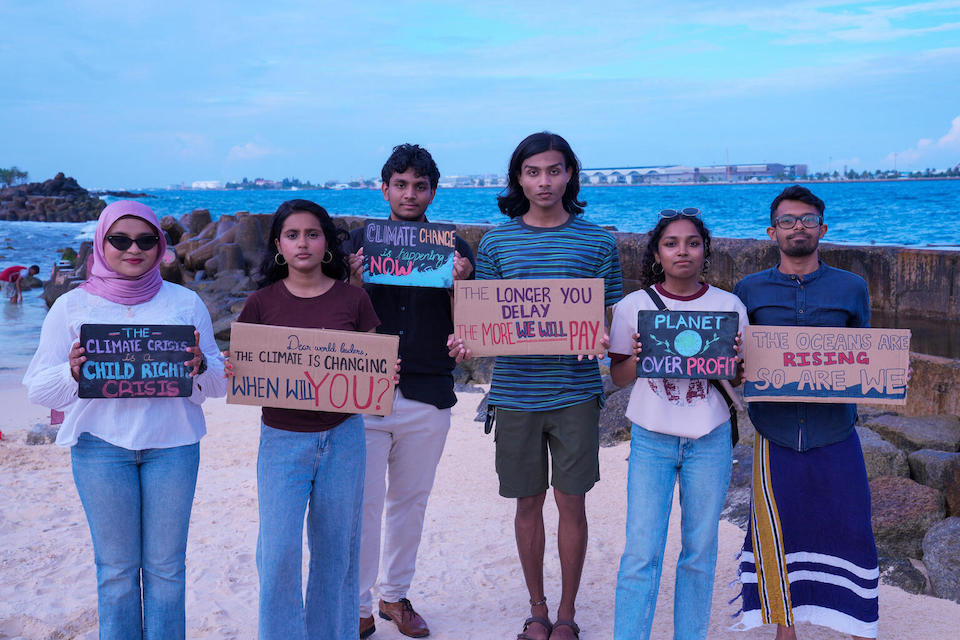
"UNICEF has always played a critical role in bringing people together, and making space for children's voices to be heard on important issues that impact them," Nordeen said. "Maldivian young people have a huge role to play in telling the rest of the world why it's so important to support the Maldives; why it's so important for global temperature rise to be limited to 1.5 degrees; why we need our coral reefs to remain healthy; and to also share what we're doing in the Maldives, how we're living in the Maldives, how we're trying to protect what we have."
UNICEF has always played a critical role in bringing people together, and making space for children's voices to be heard on important issues that impact them.
The Maldives' future as a country hinges on global action to, No. 1, reduce emissions and slow global warming — even if every Maldivian traded in their gas-powered motorbike or pickup truck for an electric vehicle, even if every building and system ran on solar energy, it wouldn't be enough to reverse the tide, Zahir explains — and, No. 2, increase climate financing, not just for loss and damage but to fund critical adaptation and mitigation work.
Current climate funding commitments for adapting critical social services like health and water to climate hazards in vulnerable countries are falling far short of what's required, failing children, according to a joint report by members of the Children’s Environmental Rights Initiative coalition, Plan International, Save the Children and UNICEF.
And so the work continues. What makes Zahir's job meaningful, he says, is that it's about enhancing, elevating and empowering young people to lead the charge. "I really hope we will be able to do more, and that's the hope that drives me."
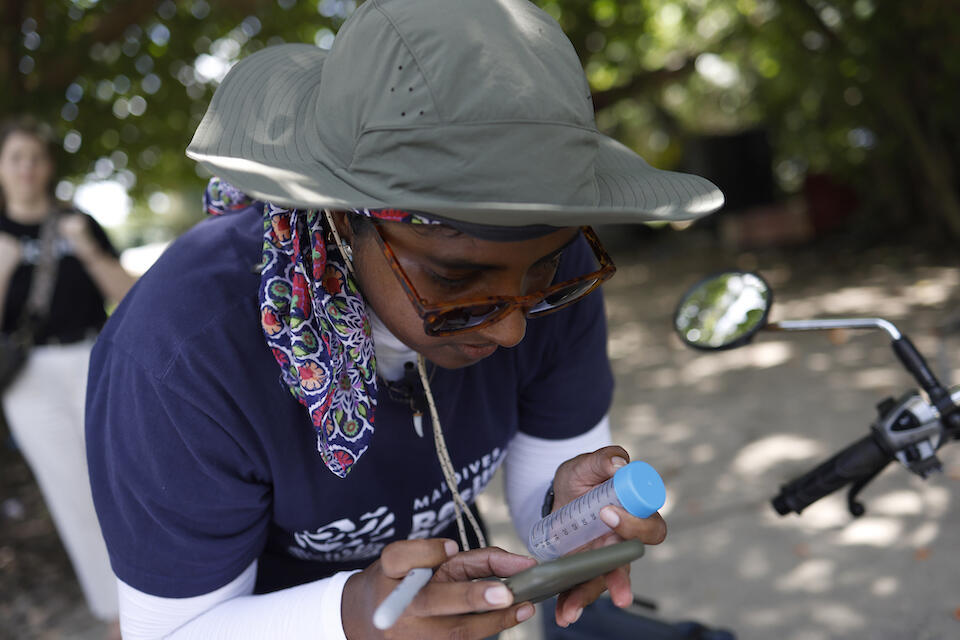
Learn more about how UNICEF is tackling the climate crisis globally. Support UNICEF's mission. Donate today.

